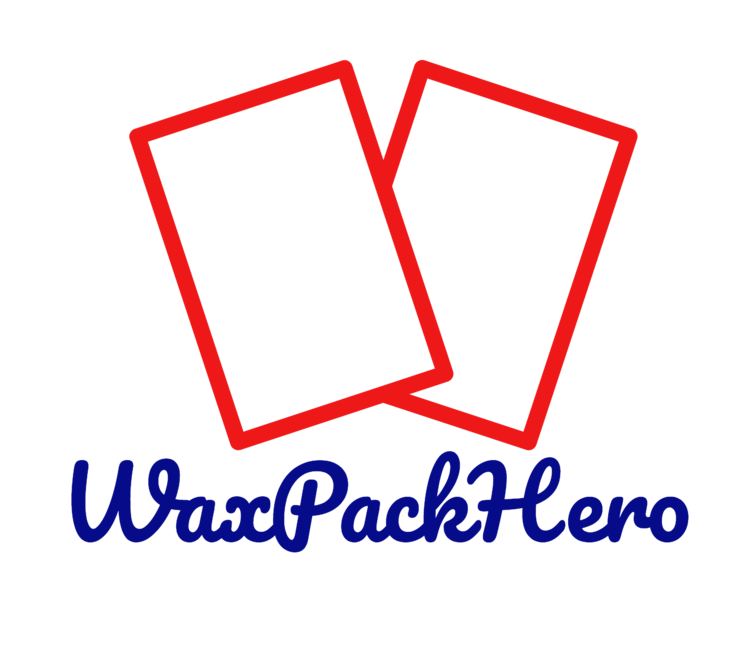The hobby landscape is changing.
Maybe.
I guess it all depends on how you look at it. With the upcoming shift in manufacturers, NFTs being in their infancy, and the host of hobby related start ups touching the storage, organization, pricing, and marketing of cards, there is no question that collecting will look different tomorrow than it does today.
But what if your focus is on the past? What if you like to collect cards from the 80s and 90s? What if vintage Hall of Famers is your thing? Or what if you like to take it all the way back to prewar tobacco cards? My guess is for you, the hobby will still look pretty similar to the way it looks today.
There will be new things to collect in the future. Some will be physical. Some will be digital. There will be things to collect from our past, most of which will be physical. Either way, they will be collected.
But why?
Ever since the Topps, Panini, and Upper Deck digital apps came on the scene, some collectors scoffed at the time spent acquiring “jpegs”. Yet the demand for the products has continued to grow, and real money is being spent filling out these digital collections. NFTs bring digital assets to a whole new level with added layers of security and uniqueness and a digital ownership history captured for all to see. Is there any reason a digital item can’t be just as collectible as a physical item?
I want to spend some time today thinking through this question.
What makes something collectible?
It Means Something To You
First and foremost, for something to be collectible, it has to have meaning to the person collecting it. Often times, that meaning is driven from a connection between the item and a time in the person’s life. I have cards in my collection that connect me to time spent with my grandparents. Specific cards bring back memories of them telling me stories of their sports heroes or telling me about things my parents, aunts, and uncles were doing as kids. Other cards connect me to summers spent playing wiffle ball in the neighborhood or watching my favorite college and professional teams on TV. For others, photos, records, cds, action figures, or other toys have this same effect.
Why can’t digital items do this same thing?
There are times when i catch myself having this mindset. I don’t want a picture of a card, I want a “real” card. Well I used to say the same thing about CDs, but you know what? I’ve found myself “collecting” some mp3s because of the memories those songs connect me to. I can remember the first time a friend showed me how to download a song, and that is why I still own Blur’s Song #2. I remember it almost as vividly as opening my first pack of cards. The digital collection of photos from my wedding elicits as powerful an emotion as any physical item I have.
For some people, a digital sports card does the same thing. Who am I to argue with that? If a NFT connects someone to a meaningful time in their life, why should I argue against the validity of their desire to collect it?
Scarcity
Another factor in collectibility is uniqueness or scarcity. Often times, the more scarce an item is, the more collectible it is. However, demand is another component of the equation. So maybe Relative Scarcity is what I should have said. Basically, collectibles seem to be common enough to have awareness and meaning connected to them, but scarce enough that not everyone who wants one can freely acquire it with no effort.
Cards have this. Other physical items have this. Some digital items have this. I don’t yet fully understand all the nuances of NFTs, but I do understand some of them are more scarce than others. Just like with their physical counterparts, that drives their collectibility.
Represents a time history
Some items are collectible because they serve as a connection to a point in history. Civil War items, Model Trains, Coins, Typewriters, Books, and Computers are all things some people collect because they are representations of a point in history. This is one of the reasons I love vintage cards. I know that those items were around during significant periods of our past.
While it is difficult for us to see today, I would argue that 30 years from now NFTs have that same potential. Can you imagine what it would be like to have a digitally verified way to show you own a ticket stub from the 2016 World Series game 7 and you were there and the original purchaser? Or maybe that you own the exact piece of art that Benjamin Franklin once owned? Or that you own the first copy of the very first Beatles album? These are the types of things future generations will be able to collect because of the digital record that will be connected to NFTs. That sounds like a whole lot of connection to history to me.
This just scratches the surface of this topic. There are tons more reasons people collect what they do. While I can’t say I personally have the desire to collect digital assets yet, I’m at least opening up to the validity of digital collectibles, and I’m growing to understand why some people do have the desire to collect them.
The future of our hobby is likely to have an increased level of digital products associated with it, and you know what? That’s ok. It’s also ok if it isn’t your thing. We have over 100 years of physical cards and memorabilia to pursue. Thirty years from now, some collections will be 100% digital. Some will still be 100% physical, but you know what? I have a feeling that quite a few will be a little of both.
Thanks for reading.



